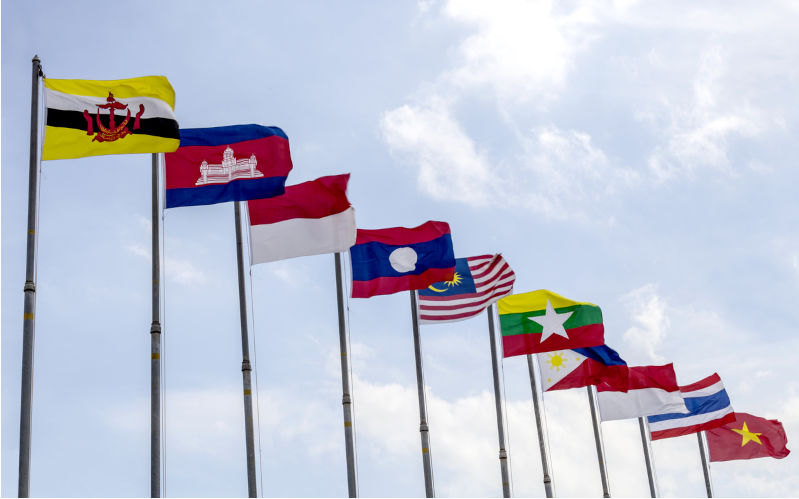Canberras endearment of ASEAN must be taken with a pinch of salt
March 3, 2024
When Australia looks out to the world, the first thing we see is the countries of ASEAN." - Australian Foreign Minister, Penny Wong.
Foreign Minister Penny Wongs recent statement of endearment for Asean must be taken with a pinch of salt. In a recent interview with a group of South-East Asian journalists during the Asean-Australia Special Summit International Media Visit to Australia on Feb 7, she said we genuinely want to collaborate with Asean and its member countries to shape the kind of region we want to inhabit. She further reiterated that for Australia Asean centrality goes beyond mere words. It reflects our geographical strategic reality. She added that when Australia looks out to the world, the first thing we see is the countries of Asean. This notion is not just an abstract concept for us.
I hope Penny Wongs remarks are not just hot air! Because despite her consistency, there are inconsistencies. While Canberra says it is part of Asia, yet when it comes to security, it entrusts it to an outside power. This gives the impression that Canberra does not trust the Asian powers and Asean member states to defend Australia against an external threat.
Australia’s strategic position requires it to maintain a strong defence capability to protect its territorial integrity and contribute to regional stability. This often involves cooperation with regional partners and alliances like the United States through ANZUS (Australia, New Zealand, United States Security Treaty). However, times have changed and there is need to reassess the strategic outlook. I recall the advice from the late Malcolm Fraser who argued in his book The Dangerous Allies for the political elites to rethink Australias dependence on powerful allies.
While Canberras policy of hedging against an uncertain geopolitical future makes sense, it does not reverberate well with many in the region that views China as a friendly power that has no intention to undermine the security of the states in the region including Australia.
However, Canberra falls for the US narrative which argues China not only poses the greatest threat to Americans security and freedom but also a threat to Australians democratic way of life. Hence, the Aussies must take up arms on behalf of the US to fight China, Washington considers its existential threat. Does China pose a military threat to Australia?
Despite our occasional disagreements with Pax Sinica, no Asean member country wants a war with the Middle Kingdom. We cannot afford to wage a war against China, our economic rice bowl.
Philippines, under President Marcos Junior, is probably the odd party that goes against the grain. But in fairness to Marcos, he does this more for personal reasons rather than strategic considerations. In a nation that values family traditions, some say Marcos is repaying the blood debt or hutang na loob, his family owed the US for protecting his late father during exile in Hawaii (Feb 1986-1989). By permitting Washington access to new military bases he reckons he has discharged his family obligation! For many, the consequences of allowing the Americans to return to the Philippines goes beyond settling family hutang na loob. It has implications on national security, sovereignty, and pride.
Australia’s location in the Asia-Pacific region places it at the centre of global economic growth and strategic importance. Strengthening diplomatic, economic, and security ties with neighbouring countries in Asia-Pacific, such as China, Japan, South Korea, Indonesia, and others, is essential for protecting Australia’s national interests and regional stability.
Australia depends on China and other countries in the region for its economic prosperity and economic security long before the current US-China tensions gripped the region. The March 2023 Lowy Institute poll found 44% of Australians see China as more of an economic partner while 52% see the country as more of a security threat a drop of 11 percentage points on last year. The same poll also found that 74% of Australians think the alliance with the US makes it more likely Australia would be drawn into a war in Asia. Are Australians prepared for a protracted war with China or is it an expression of political elites overt support for the US that seeks to destroy Chinas supposed hegemonic interests which Beijing has denied?
Canberra is beefing up its military against China, the country that has been buying its agricultural products, minerals, wines, and lobsters, for example.
According to recent reports Australia intends to double the size of its naval fleet to boost deterrent capability. The plan would see Australia increase its defence spending by 2.4 percent of the GDP, 2 per cent higher than in NATO. I find it difficult to square the paradox and priority between guns and butter.
I believe Australians need more butter than guns.
Would it not be better for Canberra to cosy up to China to promote its security and economic interests? A non-aggression treaty with China, for example, could defuse the threat. Or it could take a leaf from the Asean countries friendly approach towards China. Despite their differences with China, the Asean member states, have not ganged up militarily against their neighbour.
Australia should remain aligned with its geographical location and the natural resources and opportunities that it offers. As the world’s sixth-largest country, situated in the southern hemisphere, Australia’s unique position has both advantages and challenges by remaining true to its compass.
However, Canberra must do more than just pay lip service to regional cooperation.
